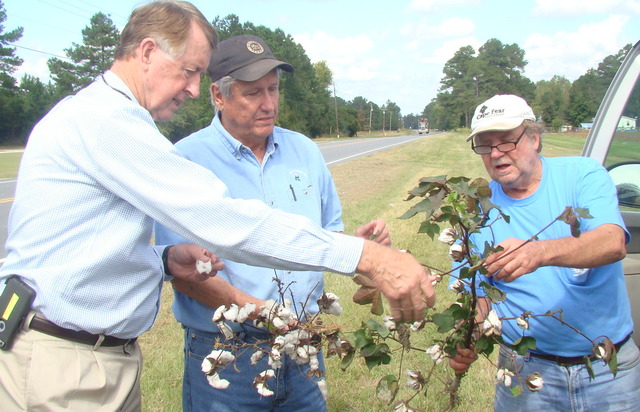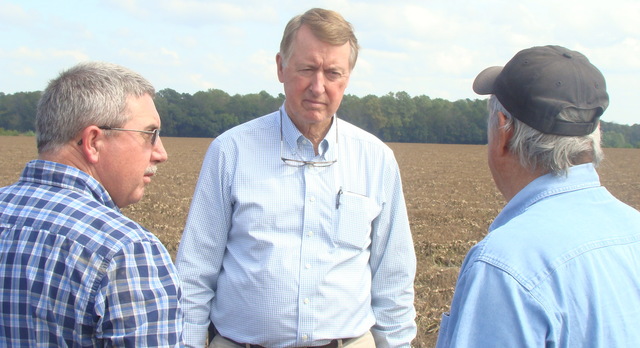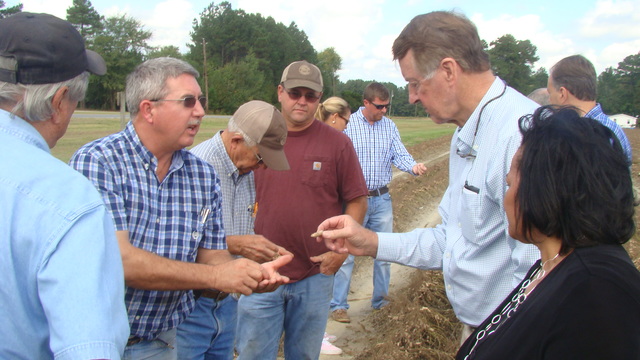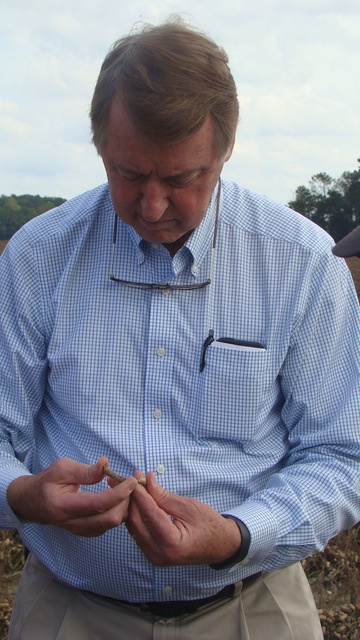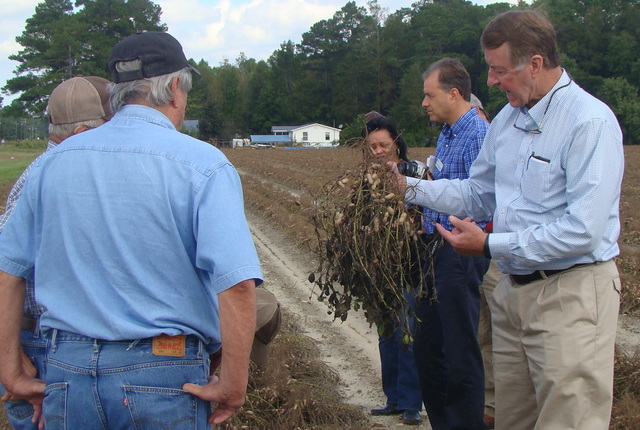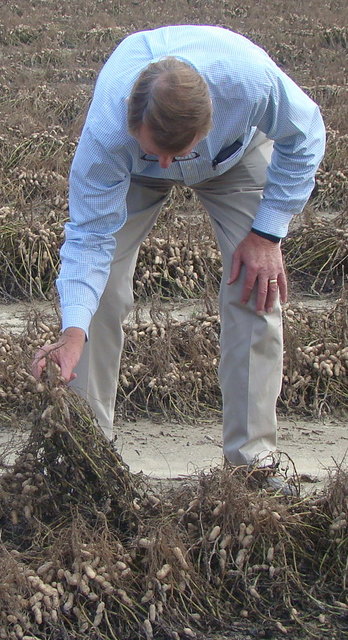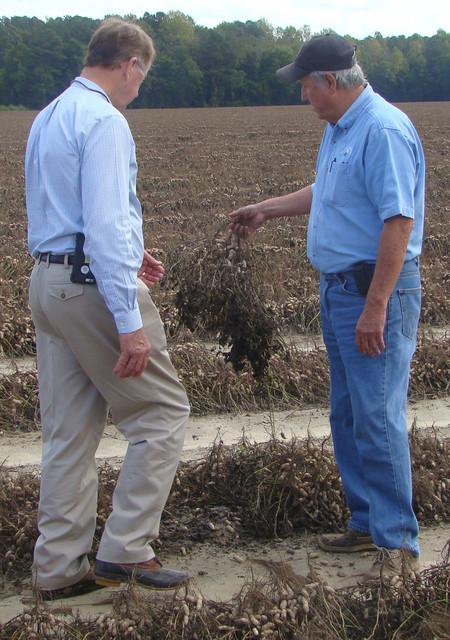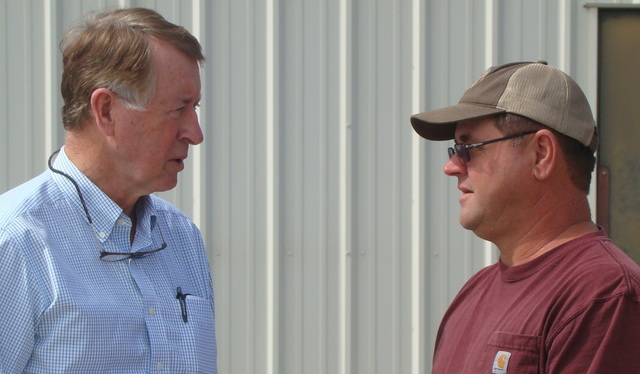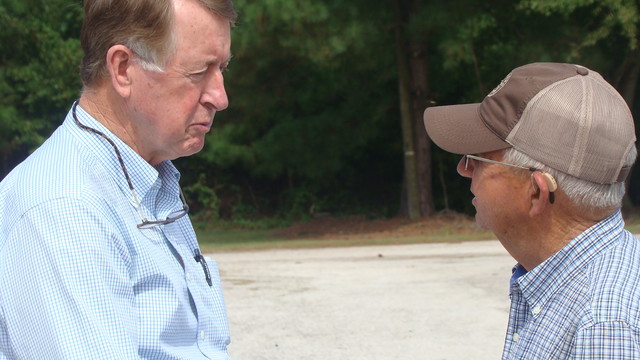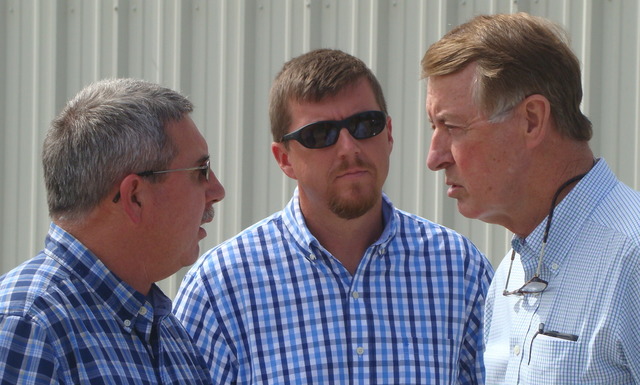CLARKTON — Despite four straight days of sunshine, the 200 acres of peanuts owned by John Melvin and Woody Marlowe along U.S. 701 South remains soggy and in jeopardy of being rejected by buyers after harvest.
“I’ve been farming for 50 years, and I’ve never seen anything like this,” Marlowe said. “We’ve had droughts and all kinds of things, but nothing like those two weeks of rain.”
Those two weeks of rain culminated over the Oct. 2-4 weekend with the ripple effects of Hurricane Joaquin. But along with the 10 days prior, Bladen County received between 11 and 14 inches of rain — and it rained every day.
“It’s not the amount of rain we got, it’s the fact that it was every day,” said Bladen County farmer Dan Ward. “Things never got the chance to dry out.”
On Friday, former N.C. representative and U.S. Congressman Bob Etheridge visited Marlowe and Melvin’s peanut crop to get a first-hand look at the damages.
“I’ve seen some worse recently, but this is pretty bad,” he said. “And insurance, if you even have it, won’t cover production costs, much less all you might have made with a good crop.”
Etheridge was joined at the peanut field by Chris Tatum and Rodney Musselwhite, representatives of the local Farm Service Agency, which is under the umbrella of the U.S. Department of Agriculture.
“We’ll be the local contact for farmers here who need to give us information about damages because of the rain,” Tatum said. “And like Bob is telling everyone he meets on this tour of farms, they really need to let us know what things are like.”
During Etheridge’s walk out through the peanut field, he and others spent time pulling up peanut plants and cracking open some of the peanuts.
“Right away I notice that most of the peanuts are falling off the plant when it’s pulled up,” Etheridge said. “That shouldn’t happen. And then, some of the shells look really good — but the peanuts inside are not.”
Marlowe said that it only takes a handful of bad peanuts in a harvest to get the entire load rejected.
“It’s entirely possible to harvest everything and not be able to sell a single peanut,” said Marlowe, who has about 800 acres of peanuts in the area. “All of my fields are in jeopardy.”
Etheridge said peanuts aren’t the only crop facing problems. Farmers are also seeing problems with cotton, soybeans, tobacco and others.
Local cotton farmer Johnny Cox joined the group near the peanut field and showed Etheridge some of his cotton plants.
“With all the rain, it’s going to make it hard for cotton to get picked and ginned,” Cox said. “And a lot of these (pods) won’t even open.”
Etheridge said this kind of crop devastation will affect everyone down the line.
“When farmers lose like they will here, it affects not only their ability to pay their bills, but also consumers when the prices for goods goes up,” he said. “It’s really in our best interest to help farmers — the average age of which is 59 and represents only 3 percent of our population — stay in business.
“We’re all in this together,” Etheridge added.
W. Curt Vincent can be reached by calling 910-862-4163.
